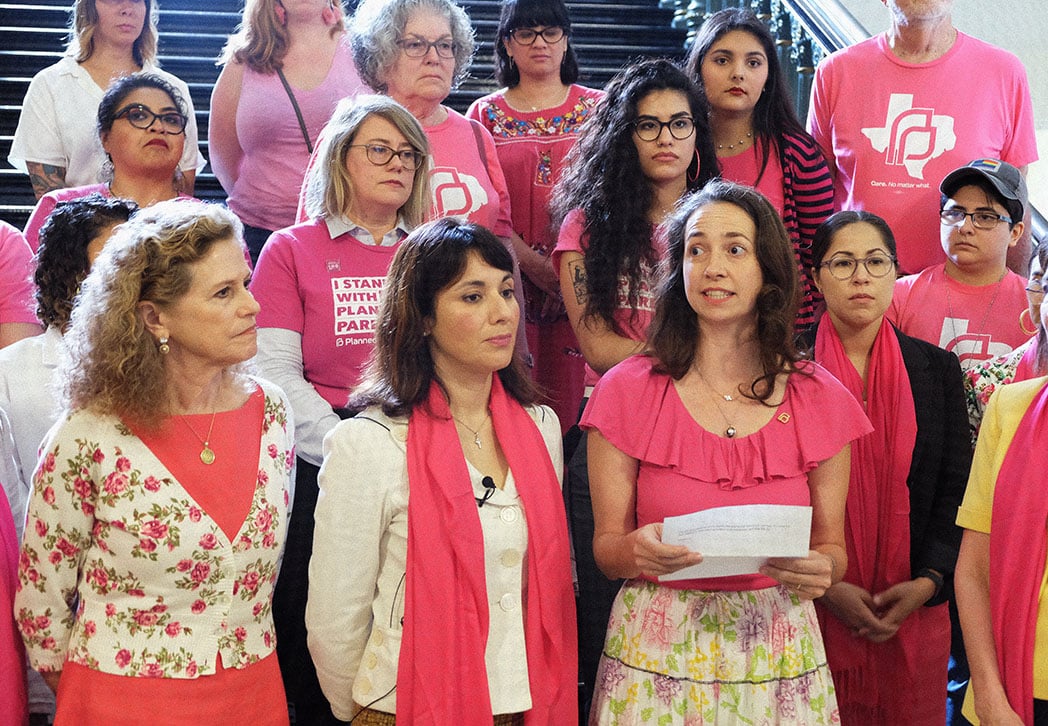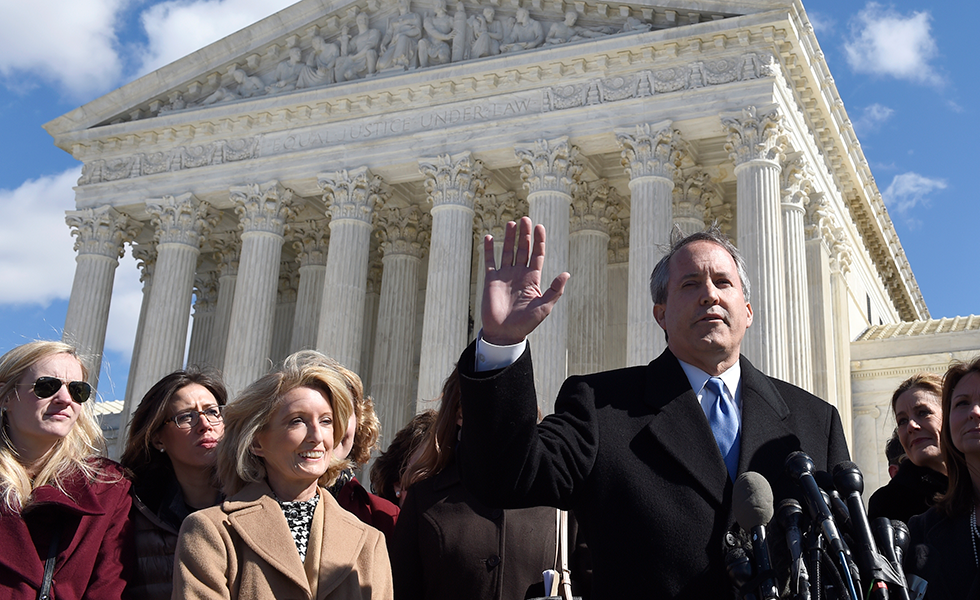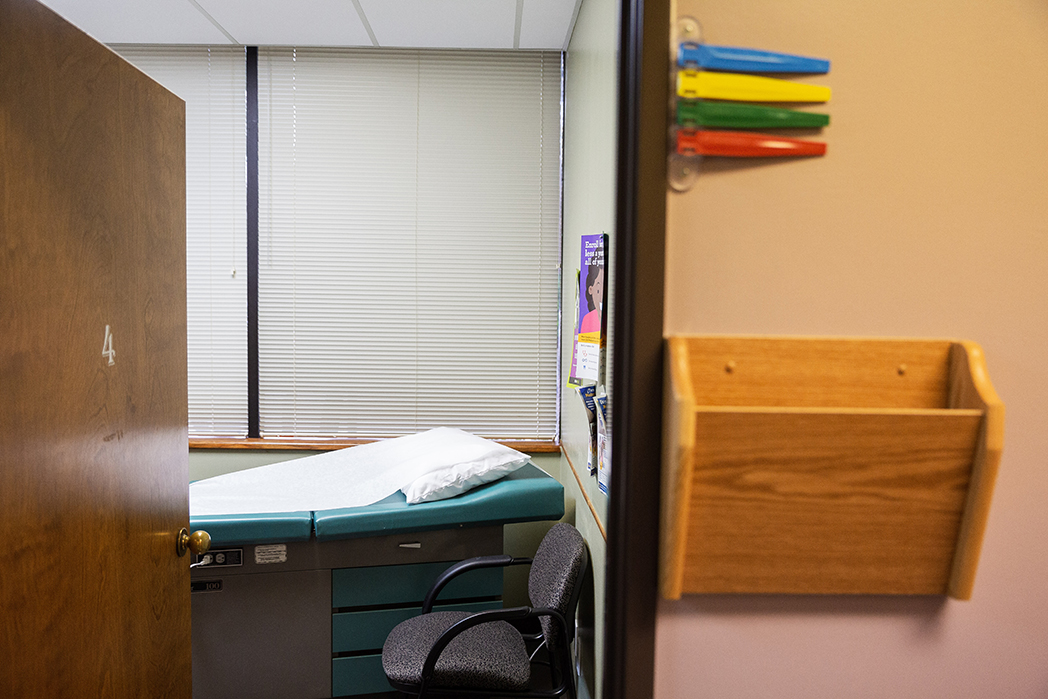
Trump Administration Approves Medicaid Funds for Texas While Excluding Planned Parenthood
Reproductive health advocates warn the decision provides a “dangerous roadmap” for other states to defund the health care provider.

The Trump administration on Wednesday approved Texas’ longtime request to restore federal funding it lost by cutting Planned Parenthood from the state women’s health program. The unprecedented move puts a rubber stamp on Texas’ controversial effort that has led to tens of thousands of patients losing reproductive health services in recent years. Advocates warn that if other red states, emboldened by the move, opt to also exclude Planned Parenthood, it could have major implications for access to care across the country.
As part of its ongoing effort to defund Planned Parenthood, Texas kicked the organization out of its low-income Medicaid women’s health program in 2013, a move that the Obama administration found to be in violation of federal law. Rather than include Planned Parenthood in the program, Texas opted to leave millions in federal funding on the table, instead creating its own state-funded replacement program now called Healthy Texas Women. With Trump in office, state officials hoped they’d have an ideological ally, and in 2017 filed an 1115 Medicaid Waiver request to restore the federal funds without including abortion providers or their affiliates.
Texas’ efforts to defund Planned Parenthood have been devastating for access to preventive health services like contraception and cancer screenings. Following budget cuts in 2011 and the exclusion of Planned Parenthood from the women’s health program two years later, dozens of family planning clinics closed and tens of thousands of people lost access to reproductive health care.
Under Healthy Texas Women, larger, more experienced family planning providers have largely been replaced by individual doctors and smaller clinics, many of which haven’t seen any patients in the program. In the program’s most high-profile failure, the state awarded multi-million dollar contracts to the Heidi Group, an anti-abortion organization with no experience in family planning programs to fill in the gap left by Planned Parenthood. Texas pulled its contracts in 2018 after the Observer found that the group had served less than 5 percent of the patients promised, and the founder now owes more than $1.5 million dollars back to the state in misused taxpayer funds.

Yet Republican state lawmakers have repeatedly held up the Healthy Texas Women program as a viable and sufficient alternative—and the Trump administration clearly agrees. Under the deal reached Wednesday, the federal government will give Texas $350 million over five years for its Healthy Texas Women Program. Governor Greg Abbott has touted the waiver as an opportunity to expand health care in the state, which has the highest uninsured rate in the country and the highest rate of uninsured women of childbearing age. But critics say the arrangement is replacing state funding already spent on the program, not augmenting it.
“This is a shell game of where the money comes from. There was never a question of whether we can invest more federal funds so that more women get health care,” said Stacey Pogue, a senior policy analyst with the left-leaning Center for Public Policy Priorities in Austin. “There’s not new funding to help new people, just one dollar supplanting the other.”
Earlier this month, Texas Attorney General Ken Paxton issued an opinion barring state employees from making payroll donations to Planned Parenthood, under a new state law that bans partnerships between local government entities and abortion providers or their affiliates. Meanwhile, Texas still has a pending lawsuit on its effort to eliminate Planned Parenthood from its overall state Medicaid program. And the Trump administration has already followed Texas’ lead by banning providers in the federal Title X family planning program from providing or refering for abortions, leading an estimated 900 clinics nationwide to lose federal family planning funding in recent months.
The new waiver won’t change anything here in Texas, Pogue says. “The harm is already done here. [But] it sets a dangerous roadmap for other states.”
“The state, now with the help of the federal government, is doubling down on a really bad idea,” Pogue said. It appears the state is still struggling to serve as many patients as it did before the cuts nearly a decade ago, she said. “We know what happens when you kick the largest women’s health provider out of the women’s health program: access to care gets worse.”
READ MORE:
-
A Solitary Condition: Texas has banished hundreds of prisoners to more than a decade of solitary confinement, an extreme form of a controversial punishment likened to torture. Many of these prisoners aren’t sure how—or, in some cases, if—they will ever get out.
-
Trump Harvests Support in America’s Farmlands: At a farm convention in Austin, the nation’s agriculture sector warmly welcomed a president who has hurt them in the past.
-
ICE Quietly Lowers (Already Low) Standards at Some Immigrant Detention Facilities: The changes—which affect 18 facilities in Texas—include giving guards more leeway to put migrants in solitary confinement, as well as no longer requiring outdoor recreation areas.


